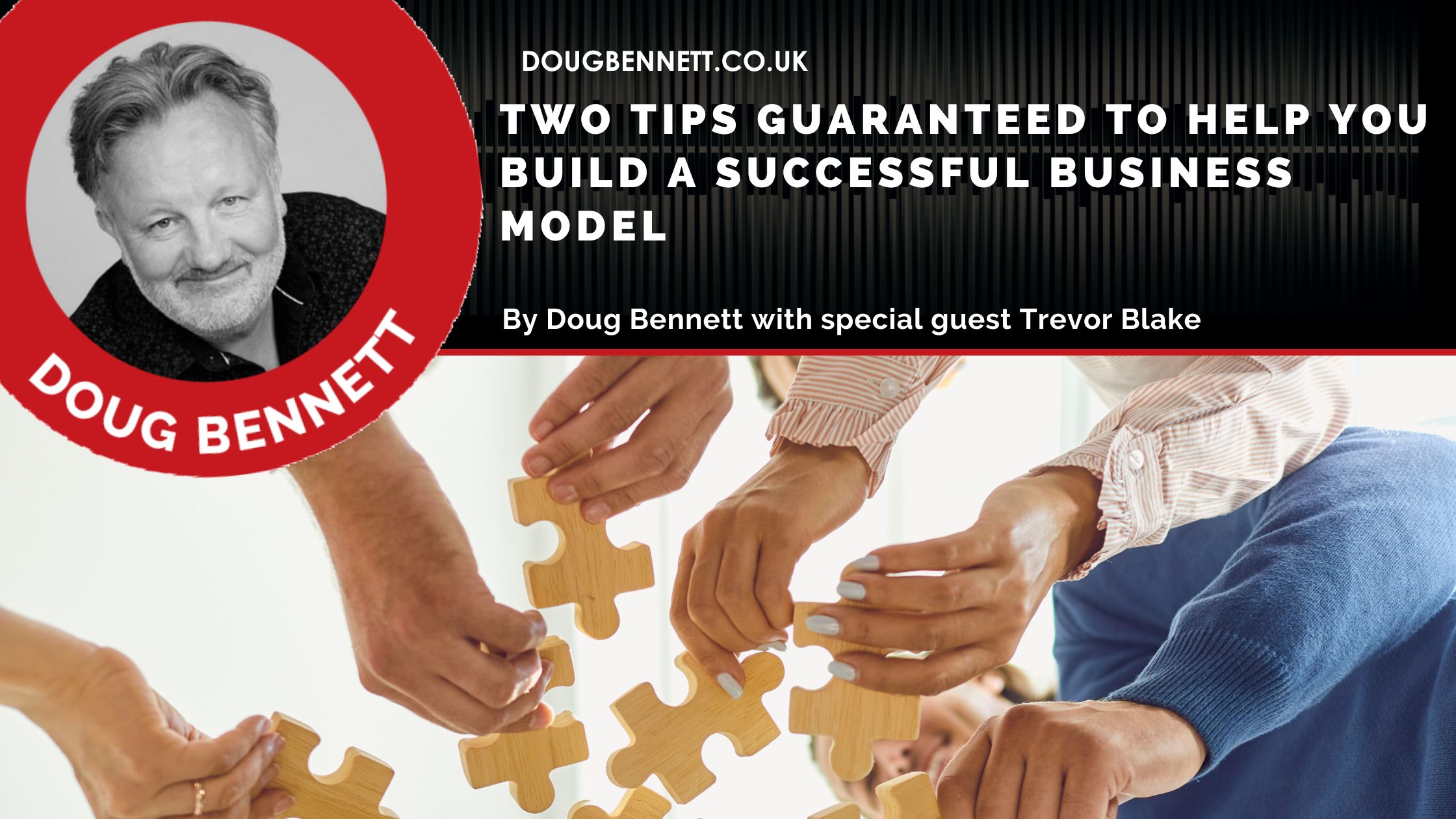Two Tips Guaranteed To Help You Build A Successful Business Model

By Doug Bennett with special guest Trevor Blake
If you step away from your business right now, how confident are you that it will run smoothly in your absence? More importantly, how confident are you that you can afford to even take an extended break in the first place?
One day, Trevor Blake, serial entrepreneur, physicist and author of NYT bestseller, Three Simple Steps: A Map to Success in Business and Life, came to a stunning realisation. He discovered that he could spend the rest of his life lying in a hammock without his company dissolving into utter ruins.
And that was because he had built a successful business model that ensured his company could still run smoothly, even without him at the helm. Today, Trevor has founded, managed and sold three companies for a combined value of over $300 million!
In this blog, I’ll be sharing two of Trevor’s top tips for building a well-oiled business model that frees you up to do the things you love.
You can also listen to our full conversation on the Goals Do Come True podcast.
1. Stop micromanaging your team
As entrepreneurs, it’s easy to fall into the trap of micromanaging your employees. You want things to be done a certain way, so you’re constantly looking over your team’s shoulders and pointing out areas for improvement.
However, in order to build a successful business model, Trevor points out that you must learn to trust the team you work with and allow them to get on with their jobs.
Trevor: “ When I worked in the corporate world, I realised that our egos make us into supervisors. We’re always supervising and looking over someone else’s shoulder. But you need to keep in mind that you’re working with people who are good at what they do, so you can let them get on with it. One skill I acquired was learning to get out of my team’s way and let them get on with the job. And they love that.
So, I had to change my ego and transform from being a supervisor into being a trusted peer. It does take a while to trust people when you’ve not been trained that way. But once you get into it, you realise that these people are really capable of getting things done. They also love the fact that you’re not calling them up every five minutes to say, ‘Are we there yet? How’s it going?”
I love the fact that Trevor learned to let go of the reins – it’s one of the lessons I learned very early on in business!
I always encourage my team members to make decisions on their own, and if they make mistakes that could cost us £200, for example, I’ll cover the cost. To date, I’ve never had to pay this amount – in fact, I’ve even raised the bar to £1,000!
Letting go of the reins and trusting your employees to do the job they’re paid to do has multi-layered benefits. First, it strengthens their decision-making skills, meaning that even in your absence, they’ll be able to keep the business running without you having to douse out any fires.
More importantly, it breeds loyalty – which is something every business owner needs.
2. Have a work-life balance
This can be a sore spot for us as entrepreneurs. We think that we have to pour all our waking hours into the business to see the results we want. However, it’s the other way around. Having a balanced life means that we get to focus on the more important things, which ultimately leads to increased productivity.
Trevor: “I know a lot of entrepreneurs who work 12-hour days. And they’re successful by the metrics with which we judge success. But they often have to resort to alcohol, pills and the like, in order to get through the day. I couldn’t do that. I like laying in a hammock, and I like my time off.
I discovered a long time ago that we fool ourselves into thinking we’re getting into a zone. But what we’re actually doing is getting diminishing returns the longer we concentrate and the longer we focus. The brain can only concentrate for two hours at maximum.”
Trevor clearly has worked out the key to striking a healthy balance between work and your personal life. I was eager to find out what his strategy was.
Trevor: “When I worked in the corporate world, I started to break up my day into a two-hour work period, followed by a two-hour relaxation period. I would find somewhere really peaceful and just chill for an hour or two. I found that it refreshed me and got me back to productivity again. So, I probably worked half as much as any of my colleagues (if you think of work as actually doing stuff).
Yet, I won all the prizes and was promoted to regional manager within 18 months of starting there. I got on a fast-track career path, and within six years, I was vice president of commercial development at a big biotech company in Boston. All of that was possible not because I was the smartest in the room, but because I had a core understanding of how the brain works.”
It’s fascinating how taking regular breaks can actually help you achieve more. To create a successful business model that can run in your absence, you must first master the art of stepping away from the coalface to rejuvenate your mind, soul and body.
You’ll be surprised at how much closer this can bring you to the work optional lifestyle!
If you’d like some help with getting your goals on track and moving towards a “hammock-esque” lifestyle, grab a free copy of my guide to Work Optional Lifestyle Financial Planning® here.




